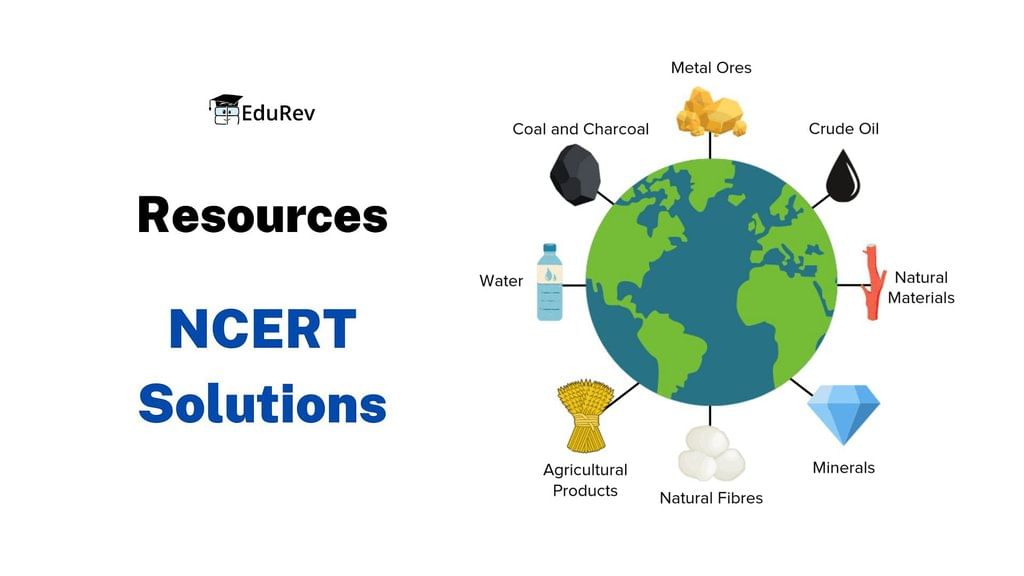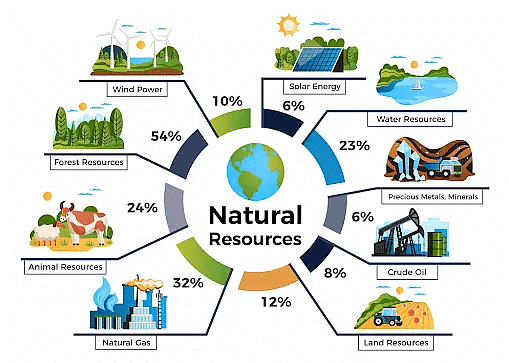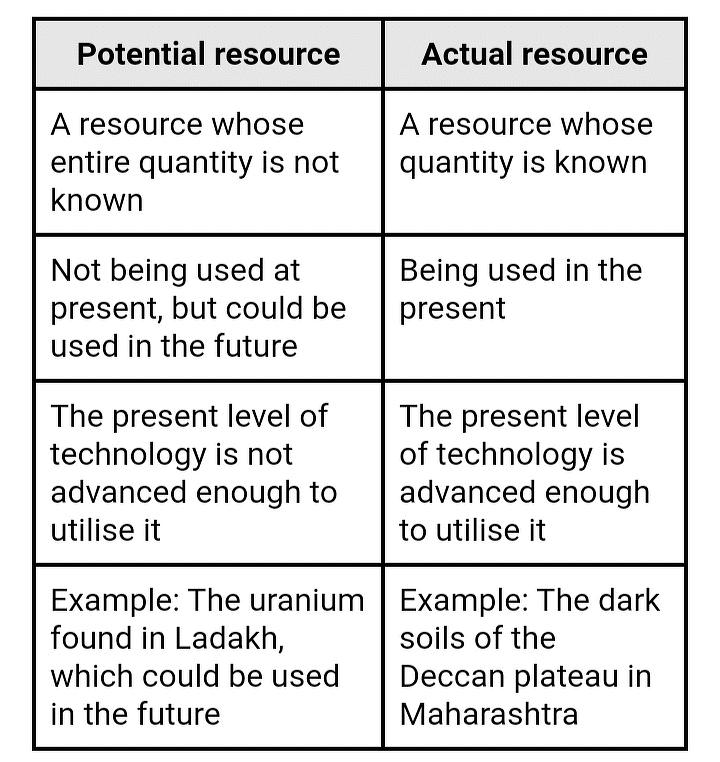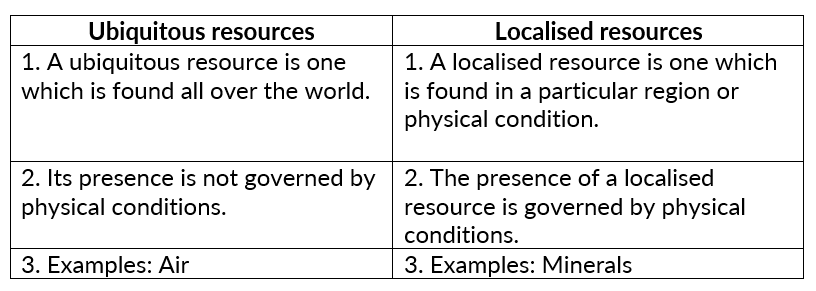NCERT Solutions for Class 8 Geography Chapter 1 - Resources
The CBSE Class 8 Social Science (Geography) Chapter Resources is an important topic that aims to educate students about the various types of resources available on earth and their importance in our daily lives. Let's look at NCERT Solutions of the chapter. 
Exercises
Q1. Answer the following questions.
(i) Why are resources distributed unequally over the Earth?
Ans: The distribution of resources depends upon a number of physical factors like terrain, climate and altitude. Since these factors differ so much over the Earth, the distribution of resources is unequal.
(ii) What is resource conservation?
Ans: Saving the resources for future generations is called conservation. It is the protection and ethical use of valuable resources such as minerals, water, trees, wildlife and others. Resource conservation basically focuses on maintaining the natural world in order to protect the sources of various resources.
 Conservation of Resources
Conservation of Resources
(iii) Why are human resources important?
Ans: People are human resources and human resources are important because people can make the best uses of nature to create more resources by applying knowledge, skills and technologies.
(iv) What is sustainable development?
Ans: Sustainable development is about using resources wisely. It means using what we need now, but also saving for the future. It is a balance between consumption and conservation. Simply put, it ensures that we meet our current needs without compromising the ability of future generations to meet their own needs.
Q2. Tick the correct answer.
(i) Which one of the following does not make a substance a resource?
(a) Utility
(b) Value
(c) Quantity
Ans: (c)
Quantity does not determine whether a substance is considered a resource or not. A resource is defined by its utility and value, which means it should be useful and have worth. However, the quantity of a substance does not determine its resource status. Even if a substance is abundant in quantity, it may not be considered a resource if it lacks utility or value.
(ii) Which one of the following is a human-made resource?
(a) Medicines to treat cancer
(b) Spring water
(c) Tropical forests
Ans: (a)
A human-made resource is something that is created or produced by human beings for a specific purpose. Medicines to treat cancer are developed through scientific research and manufacturing processes. They are intentionally produced to address the health issue of cancer. In contrast, spring water and tropical forests are natural resources, not created by human beings.
(iii) Complete the statement.
Non-renewable resources are
(a) those which have limited stock
(b) made by human beings
(c) derived from non-living things
Ans: (a)
Non-renewable resources are resources that cannot be replenished or renewed within a human timeframe once they are depleted. They have a limited stock or finite availability in nature. Examples of non-renewable resources include fossil fuels like coal, oil, and natural gas. These resources are formed over millions of years and cannot be replaced in a short span of time.
Q.3. Activity
“Rahiman paani raakhiye,
Bin paani sab soon.
Paani gaye na ubere
Moti, manus, choon…”
[Says Rahim, keep water, as without water there is nothing. Without water pearl, swan and dough cannot exist.]
These lines were written by the poet Abdur Rahim Khankhanam, one of the nine gems of Akbar’s court. What kind of resource is the poet referring to? Write in 100 words what would happen if this resource disappeared?
Ans: In the activity, the poet Abdur Rahim Khankhanam emphasizes the importance of water as an essential resource for life. Water is a fundamental requirement for the survival of all living beings.
- It is not only necessary for drinking but also for various daily activities such as cleaning, cooking, bathing, and irrigation. Water plays a vital role in agriculture as it is required for the growth of crops and the maintenance of soil fertility. In addition, industries depend on water for manufacturing and processing activities.
- If water disappears from earth, it would lead to catastrophic consequences for life on earth. Without water, people and animals would not be able to quench their thirst, and there would be no water to irrigate crops, resulting in food shortages.
- Industries would not be able to function, leading to an economic collapse. The absence of water would also cause the extinction of several plant and animal species, leading to a major disruption in the ecological balance.
Old Syllabus
Q. Differentiate between the following.
(a) Potential and actual resources
(b) Ubiquitous and localized resources
Ans:
(a) (b)
(b)

Frequently Asked Questions (FAQs)
Q.1. What are resources?
Ans: Resources refer to the materials, substances, or components available in the environment that can be used to meet human needs.
Q.2. What are the different types of resources?
Ans: Resources can be classified into three categories: natural resources, human-made resources, and human resources.
Q.3. What is the importance of resources?
Ans: Resources play a vital role in our daily lives, providing us with the necessary materials and substances required for our survival and development.
Q.4. What is resource depletion?
Ans: Resource depletion refers to the reduction in the availability or quality of natural resources due to over-exploitation or improper management.
Q.5. How can we conserve resources?
Ans: Resource conservation can be achieved through sustainable resource management practices, such as reducing consumption, recycling, and reusing materials, promoting renewable energy sources, and reducing waste production.
|
69 videos|431 docs|46 tests
|
FAQs on NCERT Solutions for Class 8 Geography Chapter 1 - Resources
| 1. What are NCERT Solutions? |  |
| 2. Why are NCERT Solutions important? |  |
| 3. How can I access NCERT Solutions? |  |
| 4. Are NCERT Solutions available for all subjects? |  |
| 5. Can NCERT Solutions help in exam preparation? |  |

















